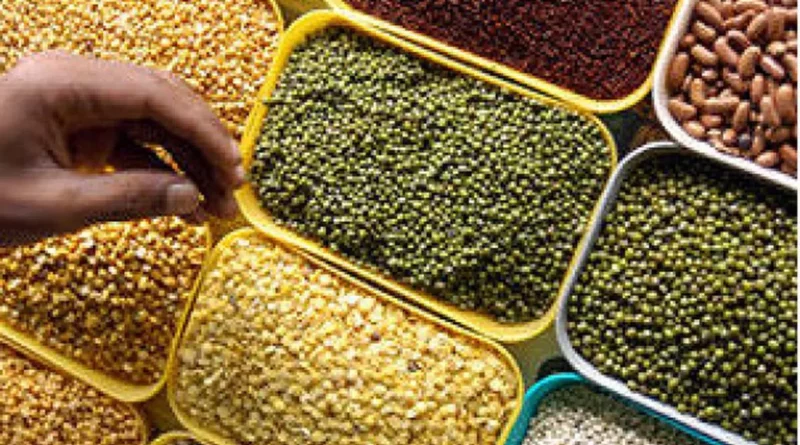Pulses imports from more countries likely
By Sandip Das
India is aiming to import pulses from several countries including Brazil, Argentina, Australia and African countries to augment domestic supplies aimed at curbing inflation in pulses.
The government has removed import duties on several varieties of pulses – tur, urad (black matpe), masoor (lentils), yellow peas and bengal gram (desi chana). This concession will be in place till the end of FY25, which is expected to boost domestic supplies.
“The abolition of import duty on bengal gram announced recently was to give a signal to farmers in Australia and other countries for planting the pulses variety,” an official said.
India’ pulses imports were at a record 4.65 million tonne (MT) last fiscal, up from 2.53 MT in 2022-23 due to surge demand and output not matching up.
“Brazil and India have been collaborating in the pulses sector for quite some time. However, our recent decision to plant and export urad to India look promising,” Angrio de Queiroz Mauricio, agriculture attaché at Brazil’s embassy in New Delhi, said.
Sources said there have been several rounds of discussions with Argentina on pulses imports.Till last year, India mostly used to import masoor, tur, urad and masoor mostly from Australia, Canada, Myanmar, Mozambique, Tanzania, Sudan and Malawi. However India’s abolished import duty on yellow peas in December, 2023, a variety which can be substituted for gram (chana).
India had signed an MoU with Mozambique for import of 0.2 MT of arhar annually for five years when the retail prices of tur skyrocketed to Rs 200 a kg in 2016. This MoU was extended for another five years in September, 2021.
In 2021, India entered into a MoU with Malawi for the import of 50,000 tonne tur per annum for next five years. Under a MoU, India is committed to import 0.1 MT of tur and 0.25 MT of urad from Myanmar till 2026.
The annual production of pulses is estimated in the range of 26-27 MT.At present, the country is largely sufficient to meet the domestic demand. However in terms of production and consumption of pulses varieties – tur, urad and masoor, ‘there is a slight mismatch,’, sources said.
Recently, the government had removed import duty on desi chana (bengal gram) while extending import duty exemption on yellow peas till October, which is aimed to curb the spike in chana prices.
Desi chana had attracted an import duty of 66%, a move aimed at encouraging domestic production. Yellow pea attracted a duty of 50% which was imposed in 2017.
Given the gap between demand and supply, retail pulses inflation has been elevated for the last several months and was reported at 16.84% in April, 2024 while arhar variety of pulses reported a price rise of 31.42%.
This article has been republished from The Financial Express

